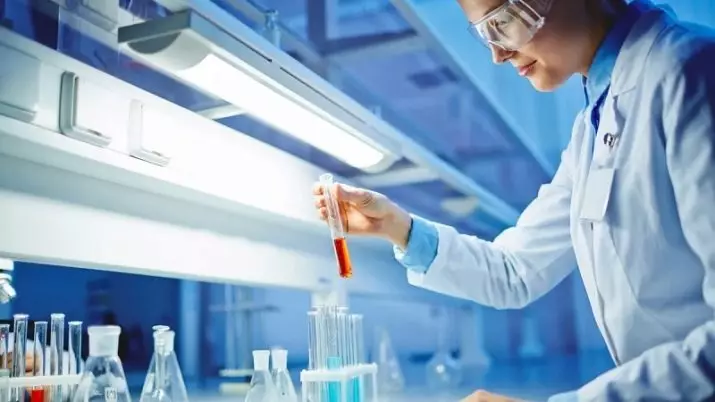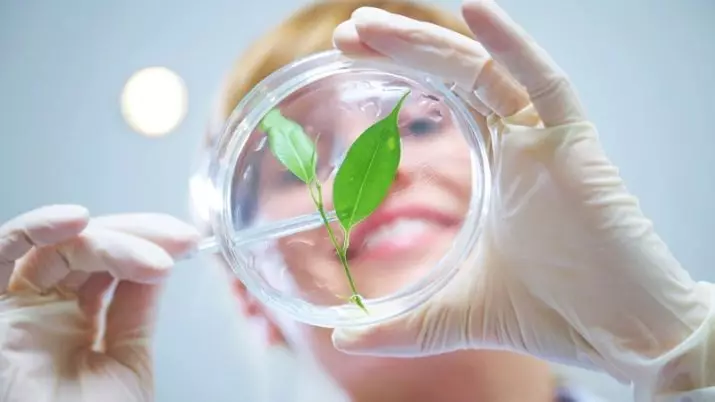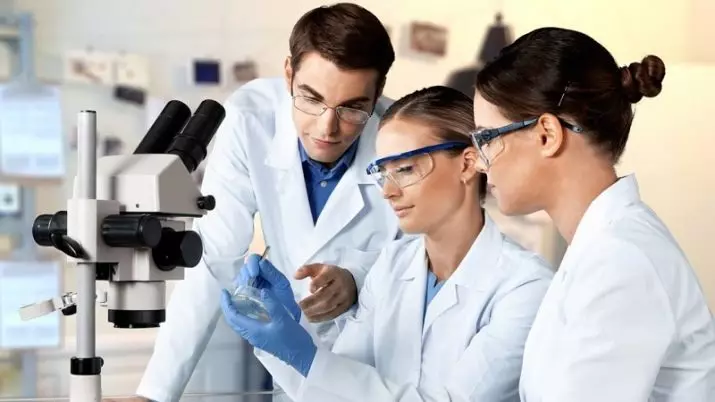Life with biotechnology and become a successful specialist in this field can only have progress in such sciences as chemistry and biology. It should be prepared for the future profession in advance, but before you need to deal - who is such a biotechnologist and what is engaged in.
Features of the profession
Many young men and girls biotechnology attracts the fact that this is the work of the future. There is a huge chance to make discoveries, contribute to the development of this sphere and just do an interesting and beloved thing. It is believed that the profession is quite modern and has great prospects. But the history of the emergence of this profession is rooted in the distant past.
Her description suggests that the concept of "biotechnology" sounded back in 1917 from the mouth of the Hungarian engineer of Charles Ereki.

This science includes a systematic approach to our lives, since it focuses many aspects - chemical, biological, technical, medical, industrial. In fact, a biotechnologist can find itself in a wide variety of spheres of our life, it all depends on the fact that it is more attracted and what he can achieve more skill.
Such a specialist can do progress in a wide variety of areas:
- microbiology;
- genetics;
- chemistry;
- Molecular and cellular biology;
- ecology;
- Food industry;
- medicine.
The activities of these specialists often consist in mastering new options for various food products, the use of known plants in new recipes, creating pharmaceutical agents.
Important importance of this profile has for medicine and a variety of studies related to this area. In particular, thanks to certain methods, you can put the correct diagnosis on time.

Responsibilities
Professional duties of biotechnologists can vary greatly depending on where this specialist works.
- If this is connected with the pharmaceutical, it is engaged in the development of medicinal compositions, their improvement, change, if necessary. In his competence - the introduction of new production technologies, the improvement of the previous ones. It also makes all the necessary reports on the manipulation. Since this is a very responsible process - the creation of drugs, vitamins, food additives, the biotechnologist has no right to be mistaken. It is necessary to be very attentive and responsible in this area.
- Provided that the biotechnologist devoted himself to research activities, he takes part in various developments and experiments, fixes it documented. In the event of errors and miscalculations, it works on their elimination. In addition, he can engage in methodological developments in the areas related to.
- Biotechnologist can be associated with ecology. Then he follows the environment, controls waste disposal, monitors the quality of air and water, develops events that can improve the state of the ecology, and monitors their execution.
- A biotechnologist can realize himself in the food industry. And then his obligations include strict control over the quality of raw materials and products, compliance with all sanitary standards, as well as the development of new recipes and technologies, introducing them into life and control over the passage of the entire chain.
- And in agriculture, this specialist can be in demand. In this case, he is engaged in breeding, withdraws new hybrids, develops means for combating diseases and pests, as well as methods for increasing yields.

Knowledge and skills
The work of a biotechnologist requires knowledge of knowledge in different fields. And this is, first of all, the basics of chemical and biological processes. In addition, each of the areas requires its knowledge. If a specialist works in medicine, then this is the knowledge of the human body, the functioning of the organs. In the food industry, it is necessary to clearly understand the products, their components, the content of useful and harmful substances, know all the technology of cooking various dishes.
In addition to extensive knowledge in various fields, this specialist should have a number of qualities that will help him and in the work, and in building a career. These include:
- preferably;
- patience;
- wide horizons;
- ability to analyze various facts;
- the ability to systematize the material;
- striving for self-improvement;
- ability to defend their point of view;
- Desire to improve the world and human life;
- The desire to always get to the truth;
- stress tolerance;
- The ability to find contact with people.
In the process of work may not be smooth. Therefore, in addition to the living mind, the bulk base of knowledge and professional skills, you need to be prepared for the fact that certain issues will have to be solved with people - and not only in their team, but also at different levels. Especially when it comes to scientific discoveries and medical research. And, it means that the ability to form their thoughts, clearly and clearly to express them too.
Knowledge of the Russian language and competent speech are important components. When communicating with foreign colleagues for biologists, it will also be unlisted and English.

Education
To get the profession of a microbiologist, you will have to finish 11 classes, then take the exam, in addition, in addition to the successful commissioning of the main items, you need to choose those required in the selected university. Therefore, with the place of receipt it will be necessary to decide in advance, and therefore, it is necessary to know about how to work in what specifically the region would like to devote yourself. After all biotechnologist can apply their knowledge of different fields . But before you have to take the decisive exams, it is worth paying attention to the necessary subjects, fill the gaps if they are. If, for example, in school with the same biology or chemistry there were problems, the institute or university will not be easier. On the contrary, the knowledge base should be solid. At school, in addition to mathematics and Russian, as additional items, pass biology, chemistry, English. In Russia, on biologists of varying orientation, it is taught in many educational institutions. In major cities, the regional capitals can accurately find faculties where it will be possible to get the desired specialty. Such educational institutions can be attributed, for example, the following:
- Moscow State University Lomonosov;
- Russian State Agrarian University;
- First Moscow State Medical University. I. M. Sechenov;
- Moscow State University of Food Production;
- Institute of Innovative Technologies and Bioindustry Food;
- Moscow Physico-Technical Institute.
- National Research Polytechnic University (Tomsk);
- Ural Federal University. B. N. Yeltsin (Yekaterinburg).
Biotechnologist is a difficult profession, requiring very high quality and thorough preparation. Therefore, having decided to devote yourself to this profession, you should go to a higher educational institution. But if the circumstances have developed, and after graduation, I managed to get education in college or technical school, you can always change the specialty and enroll in the university or the institute. But then you will need to pass the exams that are necessary when entering a particular educational institution. This information will have to be recognized on the website of the university per year of receipt. It can be mathematics, chemistry, biology, physics, Russian and English. Specialists who are already working at an enterprise or a firm may in the course of work undergo training courses, attend various lectures, seminars, symposia, conferences, but they will already be associated directly with that area of activity in which success will be developed and achieving success.

Where does it work?
The profession is in demand, there are huge prospects behind it, and if desired, you can make an excellent career. The young specialist after the institute can work as an assistant laboratory assistant in the laboratory, where they make complex research. In pharmaceutical production, it may also be at first a helper. As for the work as a whole, it can be a research institute, medical institutions, laboratories, firms related to environmental protection, food industry enterprises.
The salary of such a specialist will depend on the experience, enterprise, region of residence and, of course, the quality of work. A valuable employee will always notice and help create conditions for full-fledged work and worthy salary. First, the remuneration for work can be from 25 to 30 thousand rubles, and after becoming much higher. On average, in Russia, the salary of such a specialist varies from 25,000 to 50,000 rubles. In Moscow and other major cities, it can be significantly higher.

